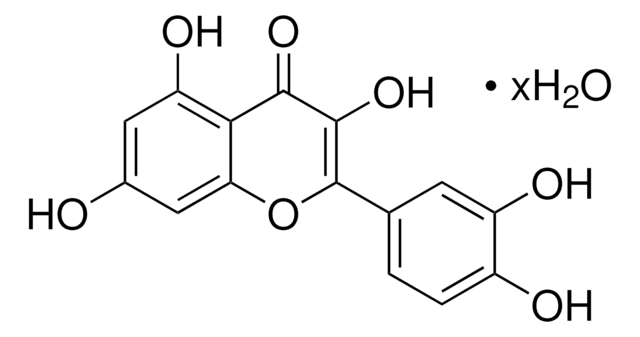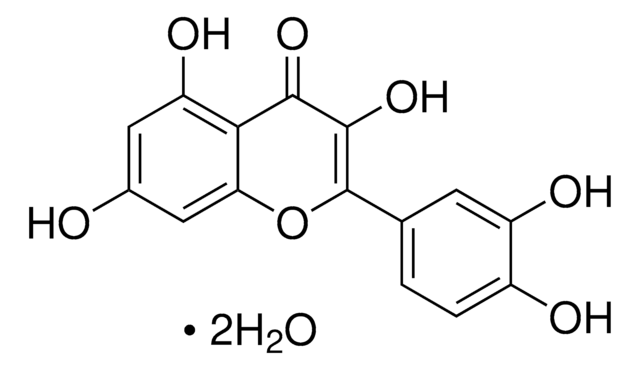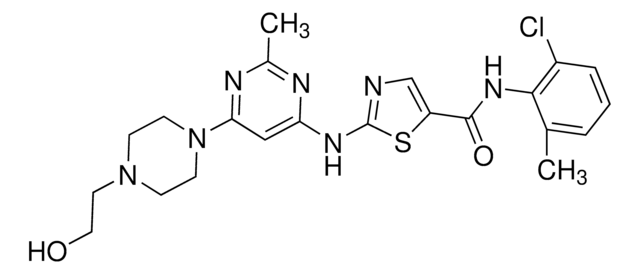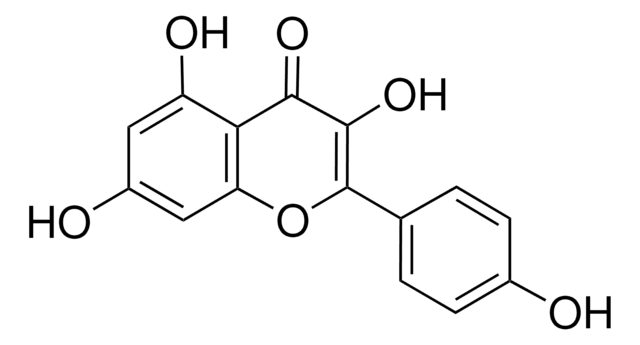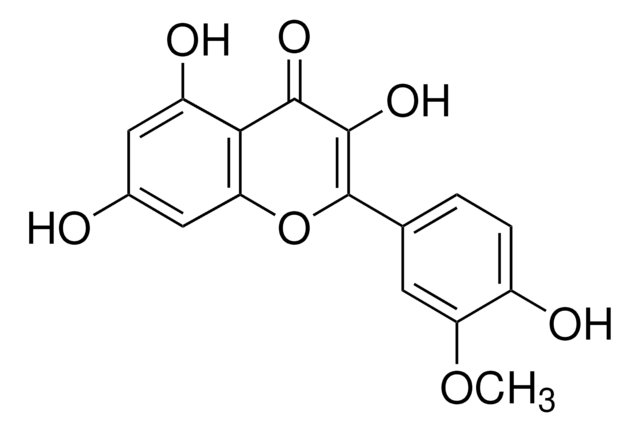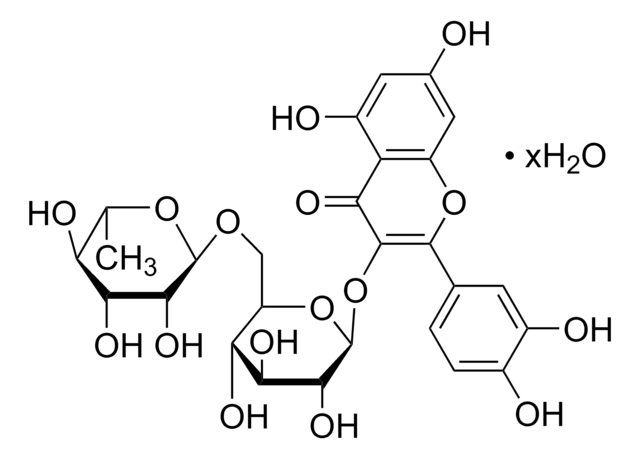1592409
USP
Quercetin
United States Pharmacopeia (USP) Reference Standard
Synonym(s):
Quercetin dihydrate, 2-(3,4-Dihydroxyphenyl)-3,5,7-trihydroxy-4H-1-benzopyran-4-one dihydrate, 3,3′,4′,5,7-Pentahydroxyflavone dihydrate
About This Item
Recommended Products
grade
pharmaceutical primary standard
API family
quercetin
manufacturer/tradename
USP
mp
>300 °C (lit.)
application(s)
pharmaceutical (small molecule)
format
neat
storage temp.
−20°C
SMILES string
OC(C(O)=C1)=CC=C1C2=C(O)C(C3=C(O)C=C(O)C=C3O2)=O
InChI
1S/C15H10O7.2H2O/c16-7-4-10(19)12-11(5-7)22-15(14(21)13(12)20)6-1-2-8(17)9(18)3-6;;/h1-5,16-19,21H;2*1H2
InChI key
GMGIWEZSKCNYSW-UHFFFAOYSA-N
Looking for similar products? Visit Product Comparison Guide
General description
Application
Also, for use with USP monographs such as:
- Cranberry Fruit Juice Dry Extract
- Japanese Sophora Flower
- Japanese Sophora Flower Powder
- Japanese Sophora Flower Bud
- Japanese Sophora Flower Dry Extract
- Cranberry Fruit Juice Dry Extract Capsules
- Rutin
Biochem/physiol Actions
Analysis Note
Other Notes
Related product
signalword
Danger
hcodes
Hazard Classifications
Acute Tox. 3 Oral - Eye Irrit. 2 - Skin Irrit. 2
Storage Class
6.1C - Combustible acute toxic Cat.3 / toxic compounds or compounds which causing chronic effects
wgk_germany
WGK 1
Certificates of Analysis (COA)
Search for Certificates of Analysis (COA) by entering the products Lot/Batch Number. Lot and Batch Numbers can be found on a product’s label following the words ‘Lot’ or ‘Batch’.
Already Own This Product?
Find documentation for the products that you have recently purchased in the Document Library.
Customers Also Viewed
Protocols
Qualitative Thin Layer Chromatography Analysis of Flavonoids and Quantification of Terpene Lactones in Ginkgo Biloba Extracts and Tablets
Our team of scientists has experience in all areas of research including Life Science, Material Science, Chemical Synthesis, Chromatography, Analytical and many others.
Contact Technical Service